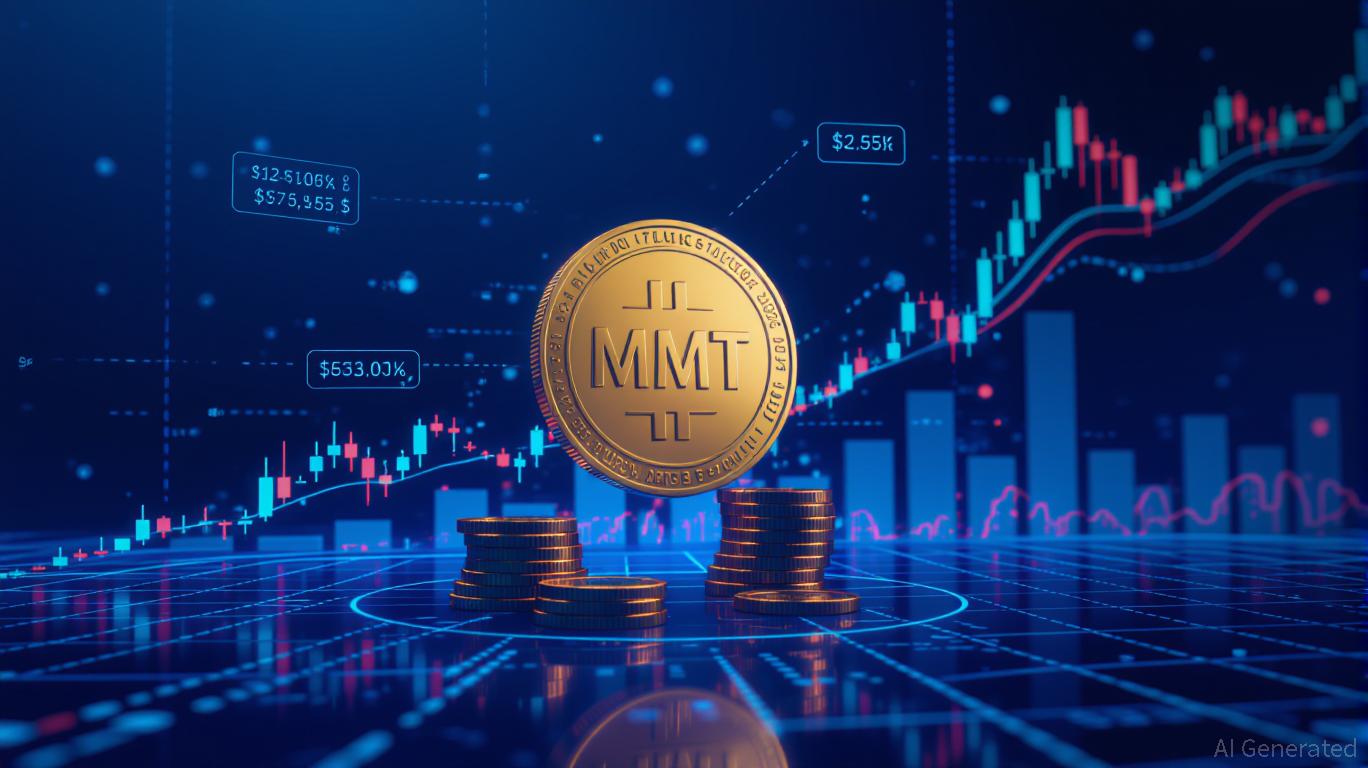COTI and Houdini Swap Integrate Privacy and Regulatory Compliance to Support Institutional Blockchain Integration
- COTI partners with Houdini Swap to enable confidential cross-chain swaps, preserving user privacy while maintaining regulatory compliance for institutional adoption. - The integration uses non-custodial architecture and split-transaction routing to obscure sender-receiver links while allowing KYT checks on regulated exchanges. - COTI's Garbled Circuits infrastructure supports enterprise-grade privacy, enabling full lifecycle compliance from asset swaps to DeFi interactions without data exposure. - With $
COTI has joined forces with Houdini Swap to deliver enhanced privacy and regulatory compliance for cross-chain asset exchanges, allowing users to transfer tokens such as
This alliance tackles a longstanding issue in blockchain: maintaining privacy without compromising compliance. Houdini Swap’s method divides transactions between two centralized exchanges and a randomly selected Layer-1 blockchain, making it impossible for any single party to follow the entire transaction route. The process uses disposable wallet addresses, randomized transaction paths, and substantial liquidity pools to mask sender and receiver connections, while still permitting regulated platforms to conduct Know-Your-Transaction (KYT) verifications. For users, this means they can convert assets to COTI without connecting their wallets, safeguarding privacy while staying within legal boundaries. For institutions, it provides a secure way to interact with crypto assets without revealing sensitive business information.

COTI’s programmable privacy technology, based on advanced Garbled Circuits, strengthens Houdini’s offering by delivering a solid platform for enterprise-level solutions. This integration supports a complete cycle of compliant privacy: users can privately hold BTC, exchange it for COTI, transact on COTI’s network, and utilize DeFi services—all while keeping their data confidential. This is especially important for businesses, where leaks could threaten supply chain partnerships or expose strategic plans. The partnership also broadens COTI’s reach, enabling developers to add Houdini’s private swap APIs to wallets and decentralized applications (dApps).
For the wider crypto industry, this partnership marks a move toward real-world privacy solutions. Houdini Swap’s service,
The timing of this collaboration is deliberate. COTI is transitioning into a commercialization phase, moving from building infrastructure to expanding its ecosystem. Houdini Swap’s
Looking forward, this integration paves the way for COTI to venture into PayFi (Payment Finance) and private smart contract solutions. With Houdini’s plans for expanding to more chains and launching incentive programs, the combined ecosystem could experience rapid growth in 2026. As privacy becomes essential for global users, the COTI-Houdini partnership sets a standard for combining confidentiality with regulatory requirements—a crucial step for blockchain’s mainstream acceptance.
Disclaimer: The content of this article solely reflects the author's opinion and does not represent the platform in any capacity. This article is not intended to serve as a reference for making investment decisions.
You may also like
Bitcoin Updates: Tether's Unstable Backing and Bitcoin's Rally Intensify Liquidity Shortage
- Bitcoin's price surge triggered Tether (USDT) outflows, raising liquidity risks as reserves face S&P downgrade. - NYDIG reports $3.55B ETF outflows in November, linked to corporate trades and algorithmic stablecoin losses. - S&P cites 5.6% Bitcoin exposure in USDT reserves, exceeding overcollateralization buffers, risking undercollateralization. - Analysts warn of self-reinforcing cycles as Bitcoin rallies coincide with Tether redemptions, straining liquidity. - Tether's 24% high-risk assets in reserves

Global Exchanges Caution: Excluding Crypto May Undermine Market Fairness and Integrity
- Global exchanges urge SEC to reject broad crypto exemptions for tokenized stocks to prevent market integrity risks and unfair competition. - SEC considers sandbox framework for crypto pilots, but warned by WFE and SIFMA against creating parallel markets and eroding safeguards. - SIFMA highlights crypto market collapses, stressing that U.S. markets’ strength lies in regulated depth and liquidity, not speed. - Robinhood and Coinbase advance tokenized stock initiatives despite resistance from traditional ex

Reevaluating MMT After Quantitative Easing: Insights from the Latest Rise in MMT Price Forecasts and Their Implications for Market Outlook
- Post-QE markets show MMT's influence on digital assets, with MMT token surging 1,300% driven by Binance airdrops and institutional buying. - Q2 2025 saw fixed-income markets shift to traditional risk-return metrics as MMT's dominance waned amid normalized term premiums and higher debt compensation demands. - Investors rotated to small-cap/value equities and AI infrastructure amid fiscal stimulus, while elevated valuations emphasized diversification and fundamentals. - MMT remains relevant for sovereign f

AAVE +0.54% As Institutional Interest in Euro Stablecoins Continues to Rise
- Aave (AAVE) rose 0.54% in 24 hours to $186.75, reflecting growing institutional interest in EU stablecoin infrastructure. - Deutsche Börse plans to integrate EURAU stablecoin into its custody services, expanding digital-asset capabilities under MiCA regulations. - The move aligns with EU efforts to reduce reliance on U.S. stablecoins and promote euro-pegged alternatives through regulated frameworks. - Institutional adoption of stablecoins may indirectly benefit DeFi platforms like Aave by enhancing liqui
